- Home
- Crash Mat Guide
Pole Dance Crash Mat Guide
Whether you call it a pole dance crash mat, a pole safety mat, or just a crash pad, it's an essential piece of safety gear that all pole dancers should have.
This guide aims to provide all the info you need to make the right choice when buying a pole crash mat, whether for yourself or as a practical gift to show your favorite pole dancer that you care.
This page may contain affiliate links, which helps support this site at no extra cost to you. Learn more.
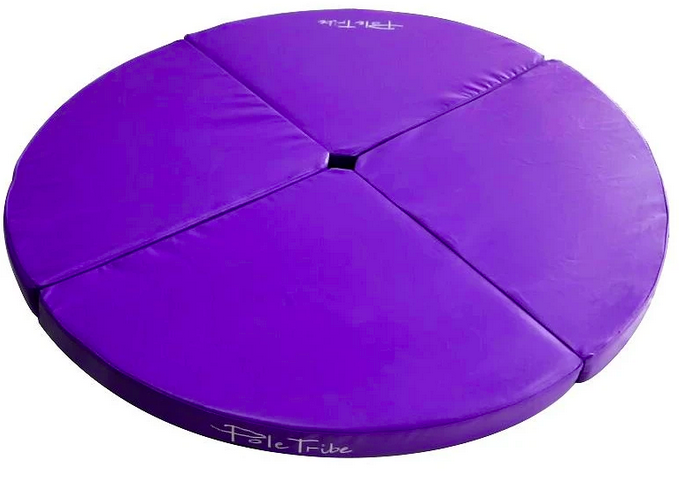 Example of a pole dance safety mat
Example of a pole dance safety matIntroduction
In this guide, you'll learn what makes a good pole safety mat, why every pole dancer should use one, and how to choose the best mat for your needs. You'll also find recommendations if you're looking to buy a pole safety pad, plus a few additional tips and answers to common questions about pole mats.
Jump to any section on this page using the following links, or to get the full picture, keep reading below!
Table Of Contents
What Is A Pole Dance Crash Mat?
A pole crash pad is essentially a gymnastics type mat with a hole in the middle so it wraps tightly around your dance pole. This type of mat provides protection from falls and slips by fully cushioning the area under your pole.
The thickness of pole mats can vary from 2" all the way up to 6" or more, but all mats typically have a core made of one or more types of foam and a vinyl cover.
Most mats are round, like the one pictured near the top of this page, but some are square like the one below.
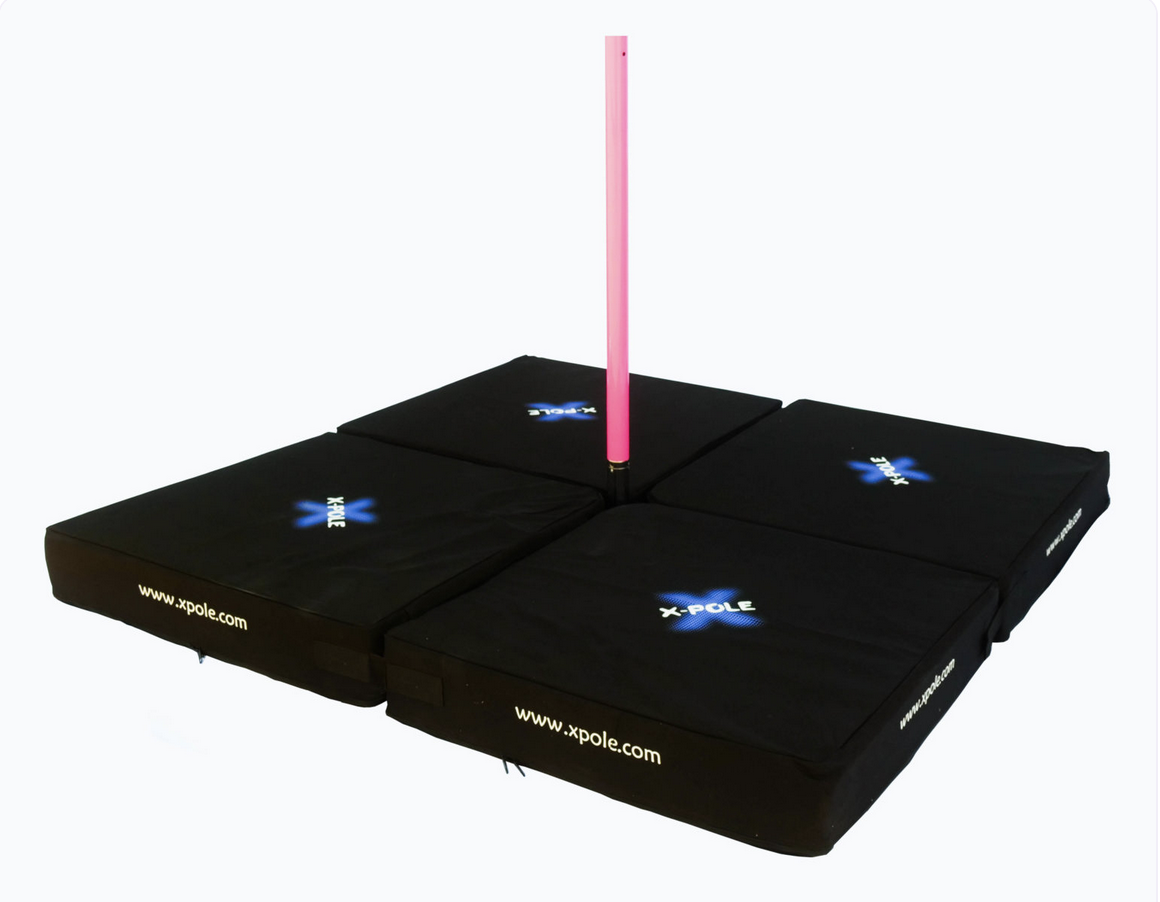
Most round mats are meant to be used on their own, while the square ones are designed to be fastened together in order to create a larger "safety zone" around your pole. The X-Pole crash mat system pictured above is one example of this type.
Many pole safety mats are sectioned to to allow them to easily and quickly be folded up for storage, and some even have handles to make carrying easier, like the Lupit Pole crash mat shown below.
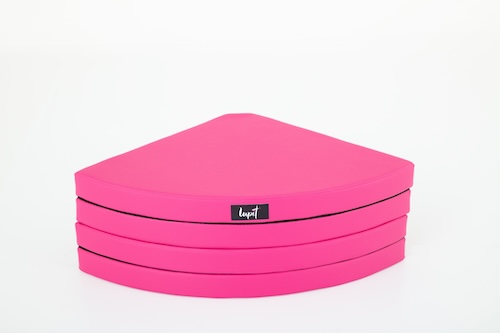
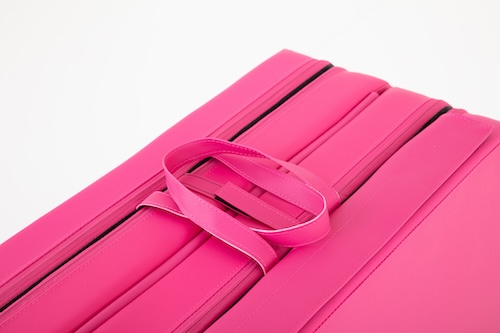
Why Do I Need a Pole Crash Pad?
A properly designed and constructed pole crash mat offers a significant degree of protection from falls, minimizing injury potential and maximizing safety.
Once you're ready to start learning intermediate spins, climbs and drops, a pole dance crash mat really should be considered essential. Especially if you're learning on your own at home from a DVD or other DIY method, and you don't have access to a spotter, a crash mat can make the difference between a bruised ego and a broken bone.
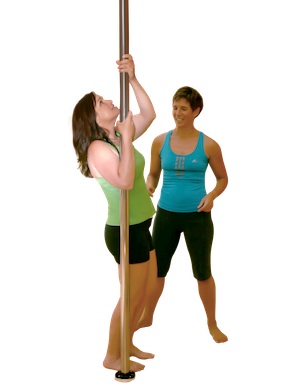
Of course it's always a good idea to use a spotter when learning inversions and advanced aerial moves, or any move that takes your feet off the ground for that matter.
If you're training in a studio, your instructor should know how to properly spot. But whether you're learning to pole at home or in a studio, you'll feel more confident if there's a soft landing waiting for you if you (or your spotter) slip up.
And while beginners may not need one right away, using a pole crash mat can protect against unexpected slips as you get used to working with your dance pole. It's also a good habit to get used to training with safety in mind from the start.
Aside from helping to prevent injuries, a dance pole mat also serves other purposes, such as increasing your confidence. Knowing you have some protection on the ground should you slip or fall, can provide just the boost you need to finally achieve that inversion you've been working on.
Plus, a pole mat provides a nice cushy surface for when you're doing strength exercises or stretches on the floor. Having a soft surface immediately available, without having to go find your yoga mat, can encourage you to actually do your important strength and flexibility training.
Finally, if you train at home and have kids, keeping a pole safety mat installed whenever your pole is accessible could help to prevent an accident. We all know how fast kids can move when we turn our backs for just a second.
Do you really want to have to explain to the emergency room doctor that your son or daughter dislocated their shoulder by falling off your dance pole? Didn't think so. Please, use a pole mat.
How to Choose the Right Mat
When shopping for a suitable pole dance crash mat, it's important to know that the quality and features can vary widely. There's no single pole mat that's best for everyone, and the one that's right for you will depend on several different factors. Let's take a look at these now.
🔵 Shape
Pole dance mats are generally either round or square. While a round mat might seem to be the most logical choice at first glance, square mats do have their advantages in certain circumstances.
For example, if you practice other aerial arts, you might find that a set of square mats offers you greater flexibility. When assembled, square mats usually cover a larger area so you can use these mats with your dance pole as well as for your other aerial activities.
On the other hand, if you have a platform pole you'll need to buy a mat that matches the shape of your pole's base or stage: a round base needs a round mat, while a square base would require a square mat for proper coverage.
For other types of poles, either round or square will work fine and the other factors below, as well as your personal preference, will be the deciding factors.
📏 Thickness
A 2" (5 cm) thickness is the absolute bare minimum you should aim for, but thicker is generally better. And studios will likely want 4"- 6" (10 - 15 cm) thick mats at a minimum, as these mats are going to get a lot more use from all levels of pole dancers.
Speaking of which, if you're a studio owner, be aware that your insurance policy may stipulate the minimum thickness of your crash pads, as well as acceptable materials and construction. Be sure to review your policy carefully to ensure the mats you plan to use are thick enough, as mats that don't meet the minimum thickness requirement may void your insurance coverage.
Thinner mats take up less space and are fine for beginners. But intermediate to advanced polers will want to consider that a thicker mat offers more cushioning and therefore greater protection from falls.
📐 Size/Diameter
In addition to differences in thickness, pole dance crash mats also come in various sizes or diameters.
If you use a platform dance pole, not only will you need to buy a mat that matches the shape of your base, you'll also want to consider the size. Ideally, your mat will perfectly cover the base of your platform pole. Having a mat that doesn't quite cover the area of your pole base, or that is too big and hangs over, are both hazards you'll want to avoid.
For other types of dance poles, your main consideration may be matching the size of the mat to the space you have available both around your pole, and for storage.
A smaller diameter mat takes up less space both when in use and when it's packed away. If you live in a small apartment, or have limited space in the room where you have your pole set up, you may prefer to buy a smaller diameter crash pad for your pole.
A larger mat, on the other hand, provides a larger "fall zone," allowing you to tackle moves where your center of gravity is farther away from the pole, knowing that your mat will provide protection across a larger area.
📦 Portability & Storage
If you have a permanent space where you'll have your pole installed, or for studios, portability may not be a top concern. In this case, you might prefer a heavier, denser mat for the extra protection.
Many pole crash mats do fold into sections, or come in several pieces that are attached to the pole and to each other with Velcro. Some also include handle straps for a truly portable design. These mats that fold or break down into sections are also easier to store when not in use, as they take up less floor area.
This is an important decision and you'll want to carefully weigh the pros and cons of a mat that is more portable, and/or can be stored in a smaller space, vs one that may be bulkier but offers a larger and/or thicker fall zone.
🧽 Interior Foam
It's important to know the type and density of the foam used inside your mat, because this will have a direct bearing on its ability to absorb the force of a fall and to provide sufficient cushioning.
You don't want a foam that's too soft, as it won't be able to absorb as much force. But you don't want the foam to be too dense either, since this can make your landings harder than they need to be.
Look for a material that offers the right balance of cushioning and support. In this way, your pole dance crash mat will have a decent lifespan and you'll have the best experience should you need to rely on your mat in case of a fall.
💧 Maintenance & Durability
🎨 Color Choices
While not a primary consideration in terms of quality or safety, all other things being equal you might prefer to have some color in your life. So if you're weighing two brands of crash mat and one offers a mat in your favorite color, there's nothing wrong with including that factor in your decision-making process.
It's important not to let a pretty color override more important factors when it comes to safety however. Choosing a mat that's only available in basic black but that meets all your needs for proper fit, thickness and storage is never a bad choice. Whereas basing your selection on color while minimizing the importance of safety may not serve you well over the long term.
🛡️ Brand Reputation & Warranty
While brand reputation can be somewhat subjective, consider that a brand that specializes in dance poles and accessories may have an advantage in terms of understanding what's important when it comes to product design. Quality brands also tend to warranty their products against defects, though the warranty period can vary.
If a warranty is especially important, for example if you own a studio and are concerned not only with the safety of your students but also with meeting the requirements of your insurance company, it's advisable to contact the company you're considering buying from to be sure you understand their warranty and what it covers.
Pole Dance Crash Mat Recommendations
Your Pole Pal offers the following recommendations for pole dance crash mats. The first four brands shown below specialize in pole and aerial products, have a track record in the industry, and produce a quality product backed by a warranty.
The last is a budget option made offshore and available through Amazon. This is not to say that this mat not of good quality, but it's more difficult to evaluate this type of product, especially when there aren't yet many reviews.
Your Pole Pal includes it because some pole dancers might need to watch their pennies, and any mat is better than no mat. It's also worth noting that Amazon has a generous return/refund policy, which is why this budget option has been included. You can evaluate the mat once it arrives, and it's easy to return if you feel it doesn't meet your requirements.
Ultimately, the mat that's right for you will depend on the importance you place on each of the factors discussed above. And while cost is definitely an important consideration, prices vary depending on things like shape, thickness, size and sometimes even the color of the particular pole dance crash mat you're considering. Prices also change over time.
All of this makes it difficult to isolate cost as a separate factor, which is why this guide focuses more on the characteristics of each pole mat and allows you to decide whether the cost of the mat represents good value given your specific needs.
To make it easier to decide which pole dance crash mat is best for you, you'll see each brand shown in it's own card below, with a bullet list of features that you can compare across the brands to find the one that best meets your needs. Where available, a gallery containing images of each brand's mats appears directly below the card. Links to each brand's website are also provided, so you can browse their pole crash mats and select the one that's best for you.
Lupit Pole
🔵 Shape - both round and square models available
📏 Thickness - 8 cm (3.94") & 12 cm (4.72")
📐 Size - 1.2 m (3'11") & 1.5 m (4'11") in diameter. Also available in 1.6 m (5'3") diameter to fit the Lupit Stage Pole
📦 Portability & Storage - foldable for space-efficient storage; soft handles for portability
🧽 Interior Foam - high quality expanded polyethylene foam (EPE)
💧 Maintenance & Durability - water repellent cover is washable with damp cloth; non-slip fabric on underside
🎨 Colors - black, white, pink, gold, silver
🛡️ Warranty - 12 months parts & labor
🌎 Ships To - Worldwide
🛒 Where to Buy - Round mats available on Amazon; Round and square models available from Lupitpole.com


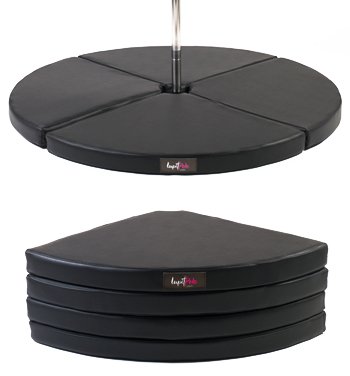
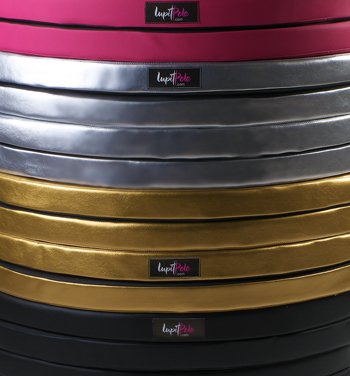
X-Pole US (ships ONLY to USA, Canada, Mexico)
🔵 Shape - square
📏 Thickness - 7" (18 cm)
📐 Size(s) - 4 panels 32" x 32" (81 x 81 cm), assembled size is 64" square (1.63 x 1.63 m)
📦 Portability & Storage - handles for portability; mat stacks in 4 square sections for storage
🧽 Interior Foam - 50% memory foam, 50% high elastic foam, fire retardant
💧 Maintenance & Durability - cover can be wiped clean or fully removed for more thorough washing/drying
🎨 Colors - black
🛡️ Warranty - 6 months
🌎 Ships To - USA, Canada, & Mexico only (other countries please order from X-Pole UK, below)
🛒 Where to Buy - Purchase directly from X-Pole US

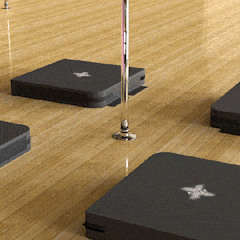
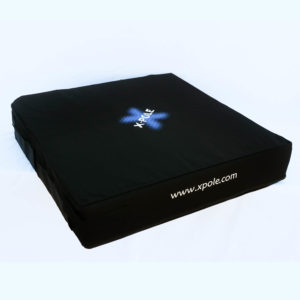
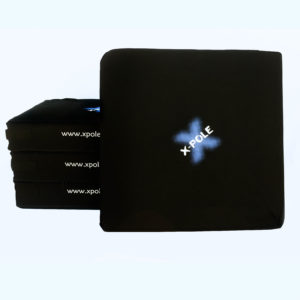
X-Pole UK (ships worldwide EXCEPT USA, Canada, Mexico)
🔵 Shape - both round and square models available
📏 Thickness - square mat: 6" (15 cm); round mat 3.94" (10 cm)
📐 Size(s) - square mat has 4 panels 31.5" x 31.5" (80 x 80 cm), assembled size is 5.25' square (1.6 x 1.6 m); round mat is 1.6 m (5.25') in diameter
📦 Portability & Storage - both models fold into 4 sections for storage; no handles
🧽 Interior Foam - not specified
💧 Maintenance & Durability - cover can be wiped clean
🎨 Colors - black
🛡️ Warranty - 6 months
🌎 Ships To - Worldwide, EXCEPT USA, Canada & Mexico (these countries please order from X-Pole US, above)
🛒 Where to Buy - Order from X-Pole UK: square mat; round mat
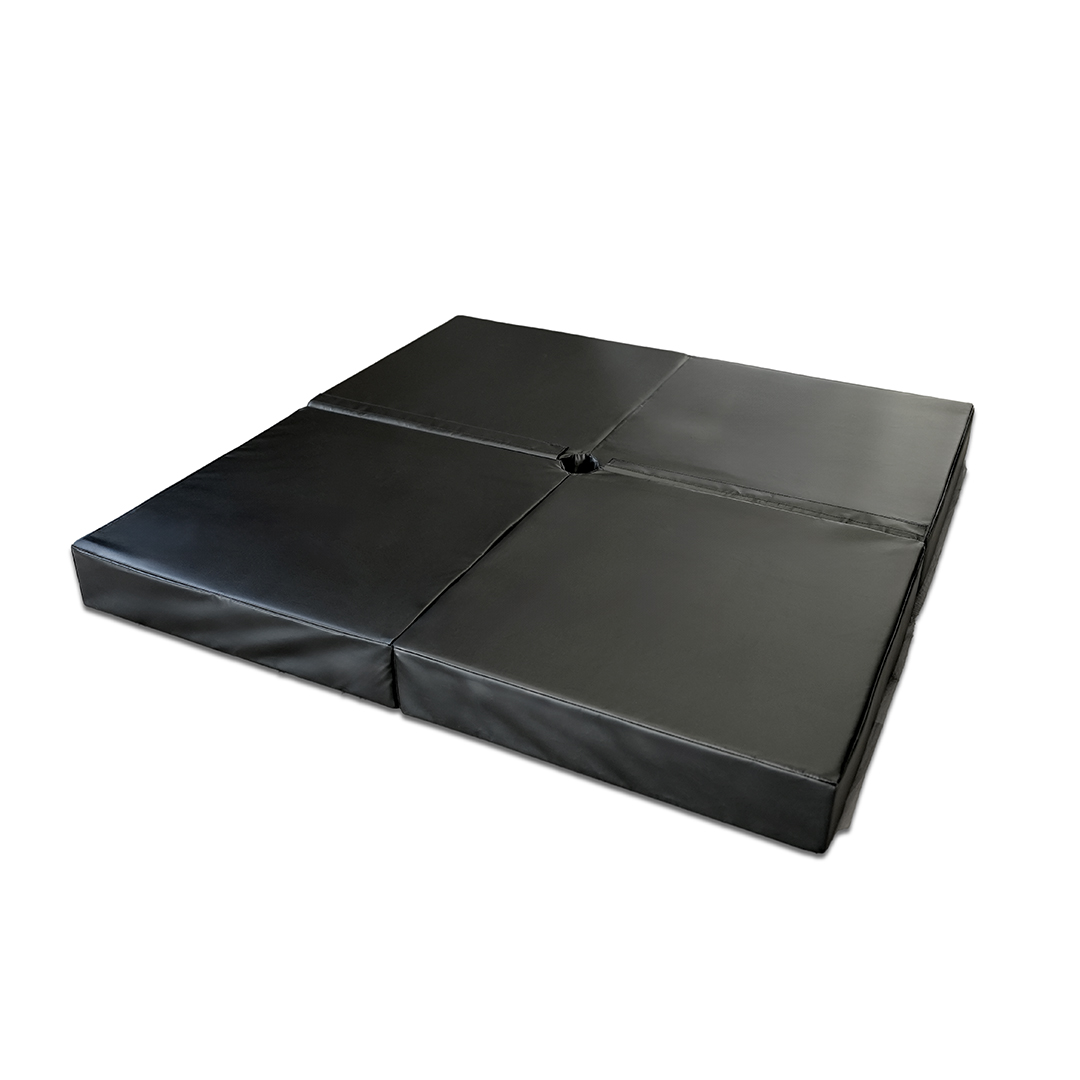
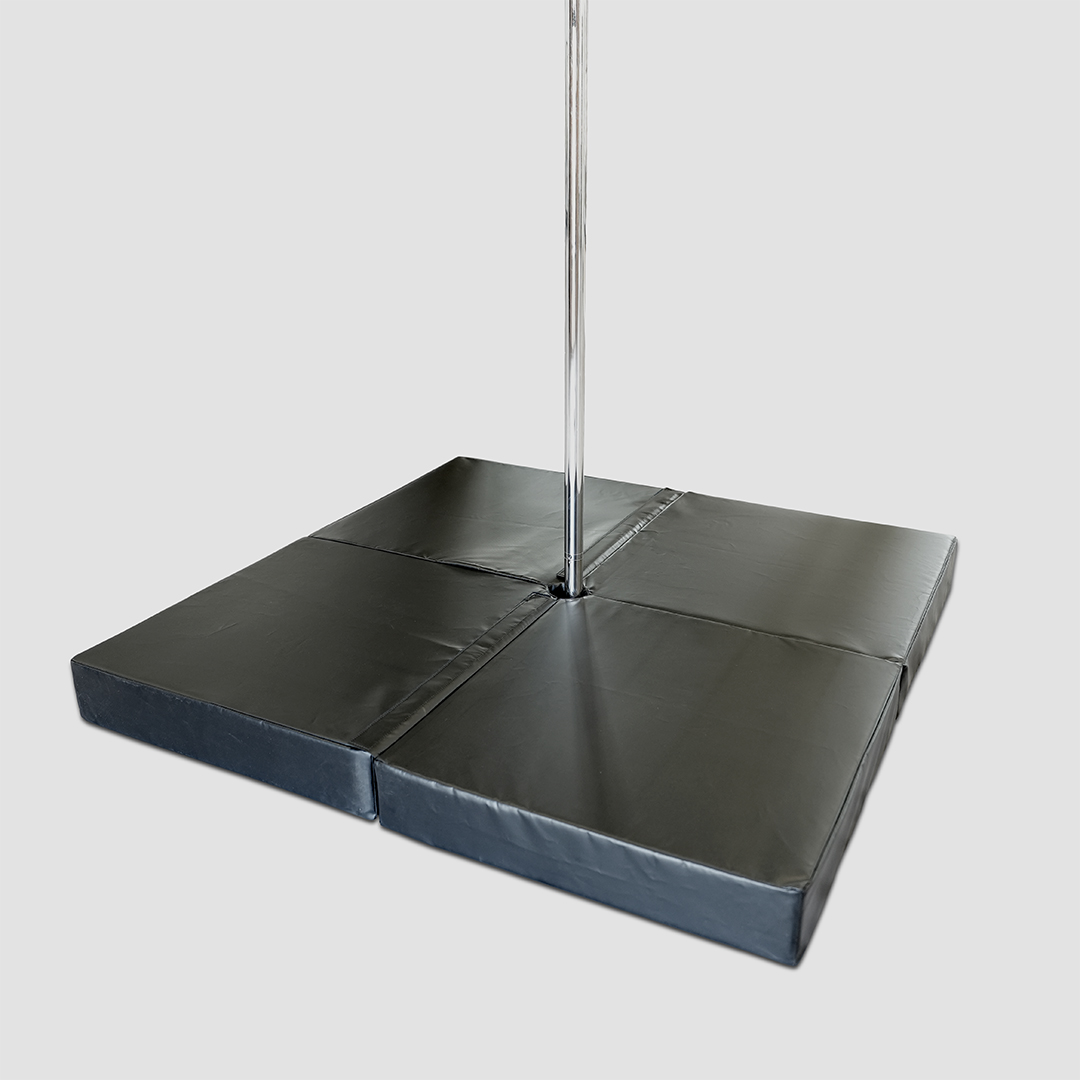
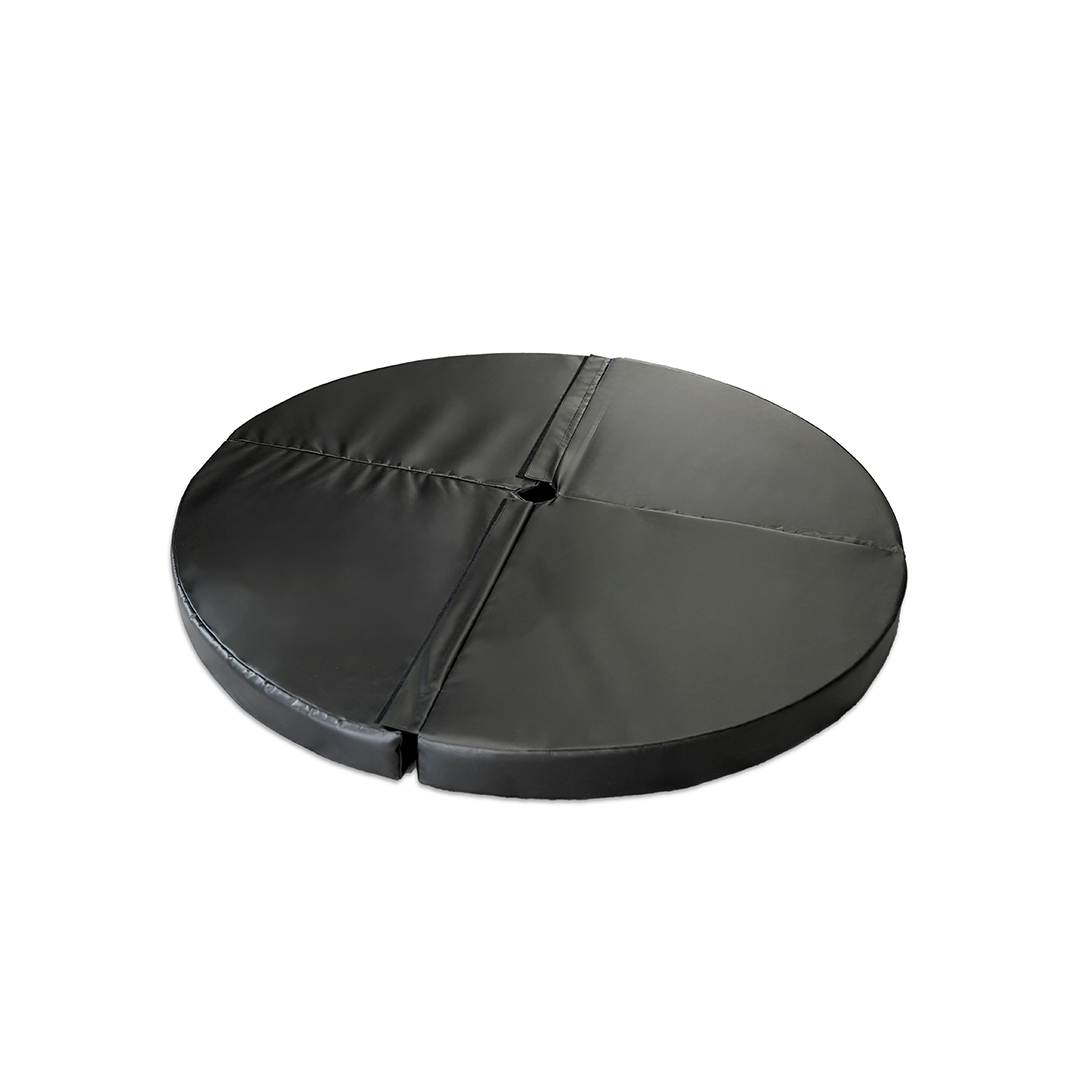
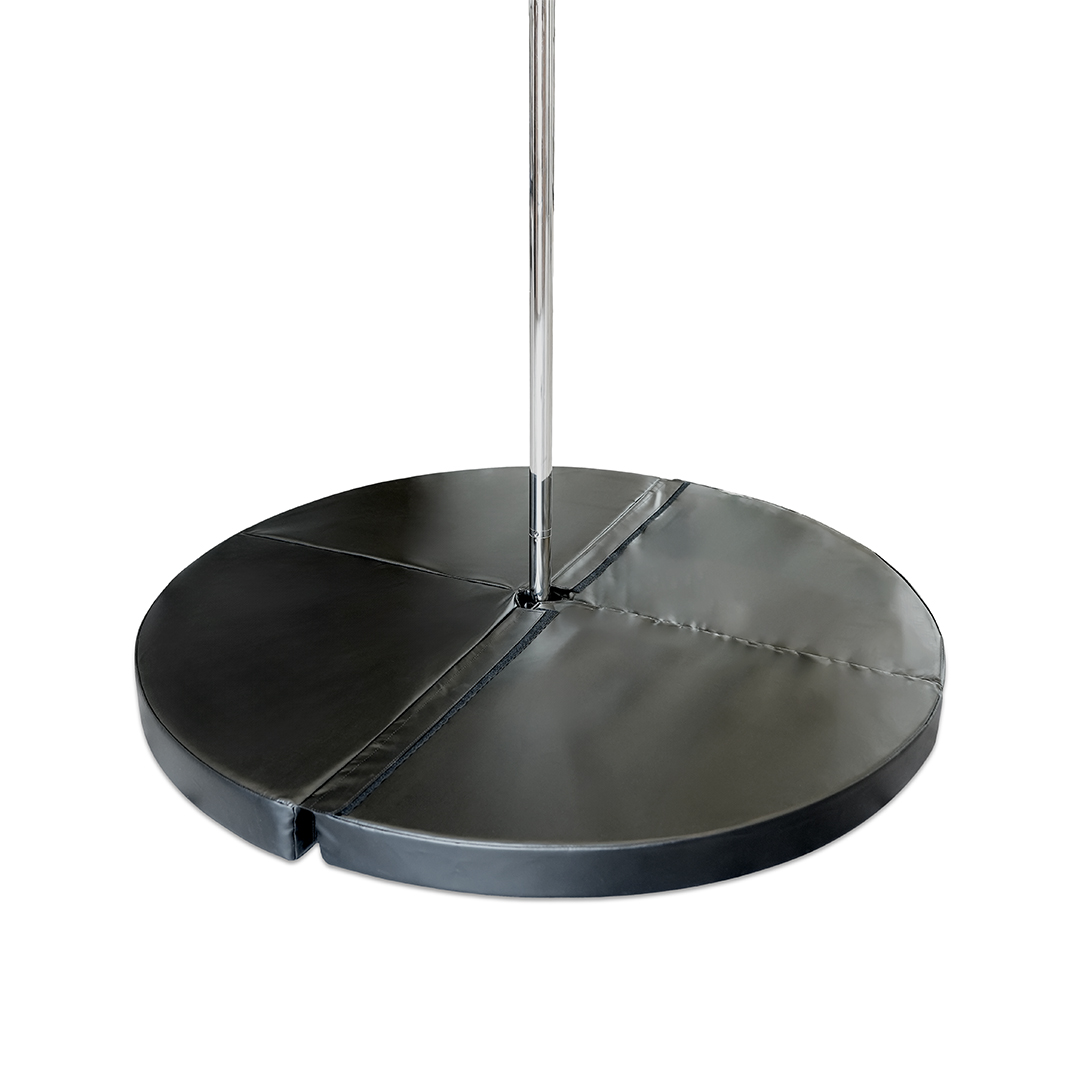
Pole Tribe
🔵 Shape - round
📏 Thickness - 3.6" (9 cm)
📐 Size - 5' (1.5 m) diameter
📦 Portability & Storage - foldable for space-efficient storage; soft handles for portability
🧽 Interior Foam - high-density, firm foam
💧 Maintenance & Durability - vinyl cover is washable with damp cloth, includes cover/carry case
🎨 Colors - black, violet
🛡️ Warranty - 12 months parts & labor
🌎 Ships To - USA, Canada & Mexico only, via Amazon
🛒 Where to Buy - Available on Amazon.ca to Canadian addresses; Amazon.com to USA & Mexico addresses

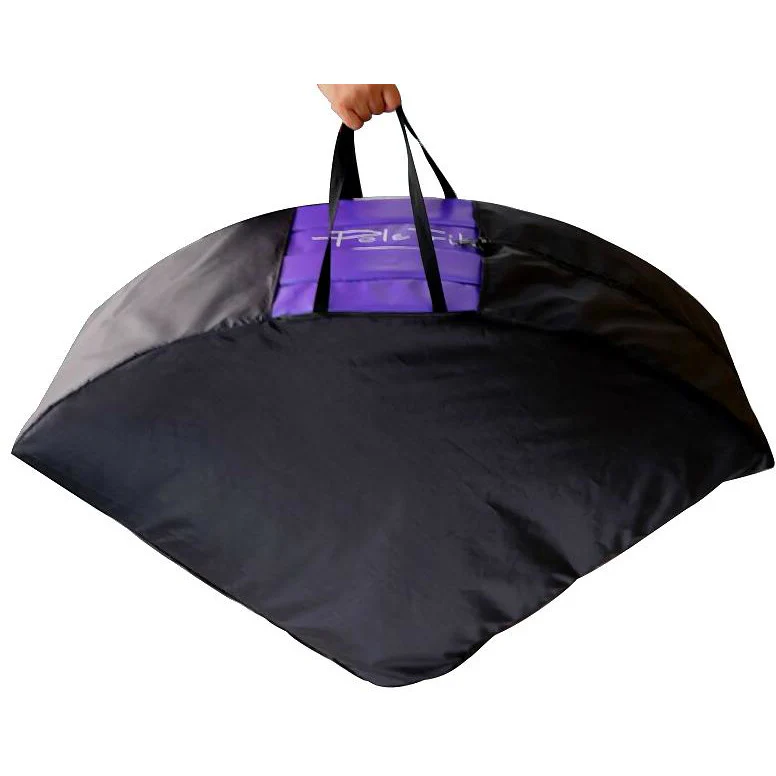
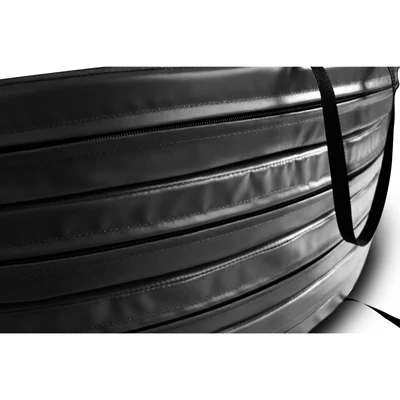
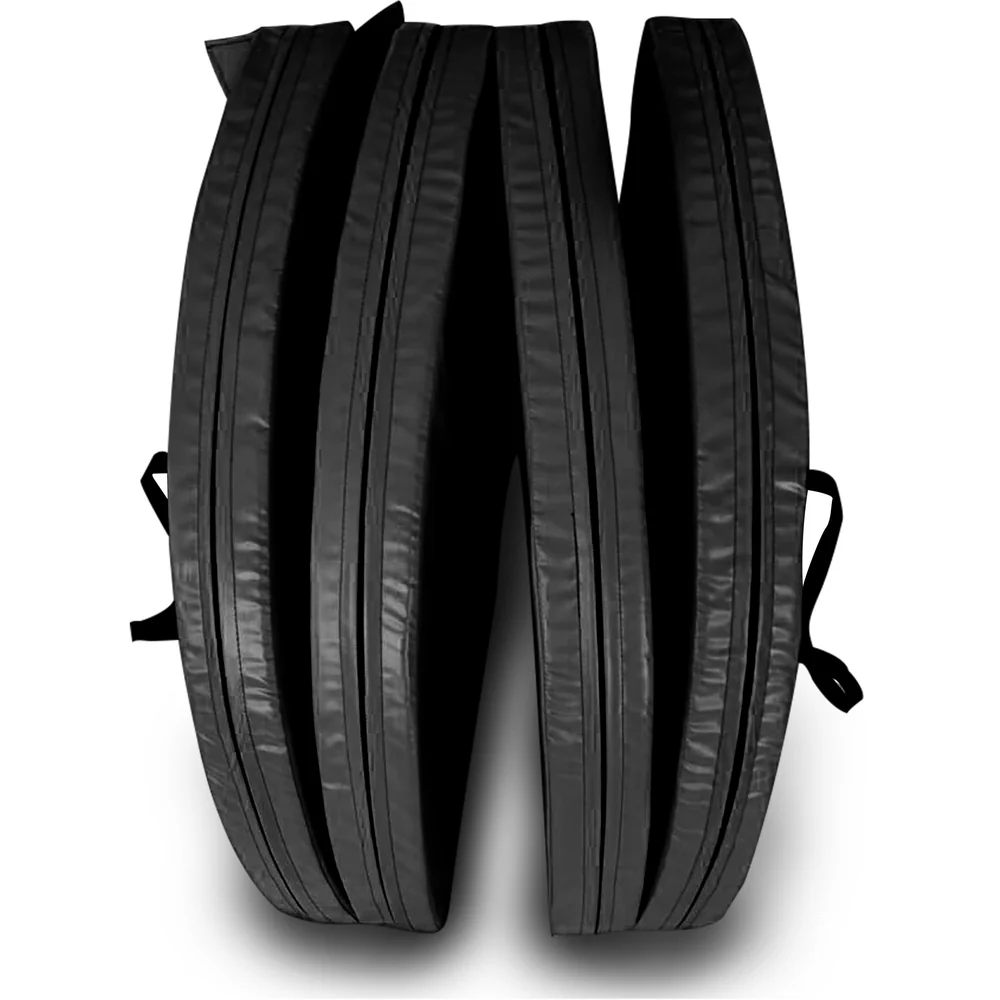
Generic (Budget) Brands
🔵 Shape - round
📏 Thickness - 3 cm (1.2"); 5 cm (2"); or 10 cm (4")
📐 Size - 1.2 m (4'); 1.5 m (5'); 1.6 m (5.2'); or 2.0 m (6.5') in diameter.
📦 Portability & Storage - foldable for space-efficient storage
🧽 Interior Foam - high-quality foam
💧 Maintenance & Durability - polyurethane cover can be wiped clean or fully removed for more thorough washing/drying
🎨 Colors - black, pink, blue, purple, yellow, orange, red, gray, green
🛡️ Warranty - 30 day refund/replacement
🌎 Ships To - Worldwide
🛒 Where to Buy - Available from Amazon
Tips for Maximum Safety
- Remember that to be truly useful, your pole dance crash mat has to be easy to set up and use, otherwise it's likely to remain in storage where it won't do you any good. The mat you choose should be easy for you to move and to secure in place.
- It should also be thick enough for your personal needs and
preferences. If you're a lightweight you may not need as much cushioning
as someone who's heavier, but if you're doing advances tricks you might consider a thicker mat just as important, no matter what your weight.
- Keep in mind that thickness isn't all that matters. Check into the density of the foam used in the mat you're considering. A very thick mat that uses low density or poor quality foam can be worse than a relatively thin mat constructed of high density foam.
- While a crash mat is an important piece of safety equipment, for maximum safety while learning, it's advisable to also ensure you have a spotter who knows how to properly assist you if needed.
- And finally, remember that while a pole dance crash mat is an important piece of safety equipment, it's not a guarantee against injury. Respect your pole and practice safely!
Pole Dance Crash Mat FAQ
Do I really need a crash mat if I'm only a beginner?
As a beginner you may not need a crash mat right away, especially if you start off doing mostly floor work and very simple spins. But don't underestimate the power of the pole! You might surprise yourself at how quickly you'll be ready to start learning more challenging spins, climbs and even simple inversions.
Having a crash pad on hand means you won't have to delay your progress, or be tempted to start trying these types of moves before your safety mat arrives. Using a pole safety mat will not only increase your confidence overall, it can protect against unexpected slips, even before you're ready to begin exploring climbs or inversions.
Final word: It's a good habit to get used to training with safety in mind from the start.
Can't I just use my yoga mat, instead of buying a crash mat specifically for pole dancing?
This is a question of using the right tool for the job. Unfortunately, a yoga mat doesn't provide the same level of protection as a pole dance crash mat, especially for falls from some height up the pole.
Yoga mats are designed to offer a little cushioning for floor based poses (asanas) and to provide some grip so you don't slide out of your downward dog. They aren't designed to cushion a fall, and are not the right shape to offer a safe zone around your dance pole.
Crash mats made specifically for pole dancing are much thicker and are designed to absorb more impact during aerial moves. They also fit snugly around your pole to provide a "fall zone" that's more appropriate for pole dancing moves.
Is there a difference between pole safety mats for home and studio use?
Pole mats aren't typically marketed separately for home and studio use, rather they are available to everyone in different sizes and thicknesses. So if you are a home user, you can choose from a range of mats depending on your needs and preferences.
Studio owners will have three important considerations however.
The first is that because studios cater to intermediate and advanced students as well as beginners, studio owners may wish to purchase crash pads with foam that is thicker and/or denser as it will absorb a greater force.
Studio mats will also get a lot more use than a crash pad used strictly in a home setting, so buying mats with thicker foam can mean a longer useful life.
And finally, as mentioned earlier in this article, studio owners would be well-advised to consult their insurance policy, which may indicate minimum specification for crash pads to be used in pole classes.
Will a crash mat slide around on tile or wood floors?
Will a crash mat slide around on tile or wood floors?
Most crash mats shouldn't shift on smooth flooring. Many have a Velcro system that securely attaches the mat to the pole and to other parts of the mat. However, very lightweight mats might slide if you happen to land in such a way that the mat is pushed away from the pole with enough force to detach one or more of the Velcro strips.
To avoid the possibility of your crash pad shifting during use, you can look for a mat that has a non-slip fabric on the bottom. Alternatively you can place a non-slip rug pad underneath your crash pad to help keep it stable while in use.
Can I use a crash mat outdoors?
Can I use a crash mat outdoors?
Yes. In fact, it's a good idea to always use a crash pad when training, whether indoors or out. Using your pole dance safety mat outdoors just requires a bit of preparation as you'll need to keep a few things in mind.
First, choose a mat with a waterproof or water-resistant vinyl cover (most mats will meet this requirement) so that any moisture or dew that accumulates won't damage it. This is especially important if you plan to leave your platform pole set up outside for a period of time.
If you're training outdoors you'll obviously be using a platform pole, so be sure that both your pole and your mat are resting securely on a flat surface. A crash pad won't be as effective if your entire setup is unstable, as this leaves you open to sliding off your platform during a hard landing or a fall...ouch!
Finally, it's best set your platform pole and crash pad up in the shade if possible, or at least avoid prolonged sun exposure, as this can degrade the crash pad's material over time.
How do I clean and maintain my crash mat?
How do I clean and maintain my crash mat?
Fortunately, crash mats are very easy to maintain. Simply wipe down the surface after each use and before storing the mat. You can wipe with a plain damp cloth, or wash with a solution of mild soap and water for a more thorough cleaning. Avoid harsh cleaners like bleach, degreasers, etc. as these can damage both the exterior fabric and the interior foam.
If you have a folding mat, wait for it to dry completely before folding it up, and store it in a dry, cool place out of direct sunlight, to extend the life of the fabric.
Are all crash mats compatible with all pole types?
Are all crash mats compatible with all pole types?
Most mats are designed to fit around standard portable and stage poles, but there are a couple of things to check before you buy.
For non-platform poles, you'll just need to ensure that the center hole in the mat accommodates the diameter of pole that you have. Most mats are sufficiently flexible that they can fit snugly around the most common pole sizes, but this is an important detail to check before you buy.
If you have a platform pole, it's very important to check that the mat you're thinking of buying fits correctly on top of the stage or base. Installing a mat that's smaller than your base presents a tripping hazard, while one that's too large and overhangs the edges of your stage will make it difficult for you to know where it's safe to step.
Do crash mats wear out or lose their cushioning over time?
Do crash mats wear out or lose their cushioning over time?
As with any foam product, pole dance crash mats can gradually compress after extended use, making them less effective over time. If you notice that your mat feels thinner or less supportive, it may be time to replace it.
That said, a good quality safety mat should last for some time under normal home use conditions. Studio mats will probably need to be replaced more frequently due to heavier use.
Final Thoughts
A pole dance crash mat isn’t just a nice-to-have item in your pole room or studio—it’s an essential piece of equipment that helps to ensure your safety (and that of your students, if you're an instructor).
Injuries are no fun. Aside from pain and discomfort, being injured means less time doing the activities you enjoy, including pole dancing. Serious injuries can even require that you take time off work, perhaps resulting in a reduced paycheck.
But a good safety mat is about more than injury prevention. It can also support your growth as a pole dancer by giving you the extra confidence you need to progress to the next level. Whether you're just learning your first spin or pushing into advanced tricks, the right mat offers peace of mind and a softer landing when you need it most.
With so many options, there’s a crash mat to suit every space and skill level. Now that you know what to look for—and why it matters—you’re ready to choose the mat that best meets your own needs, preferences and budget.
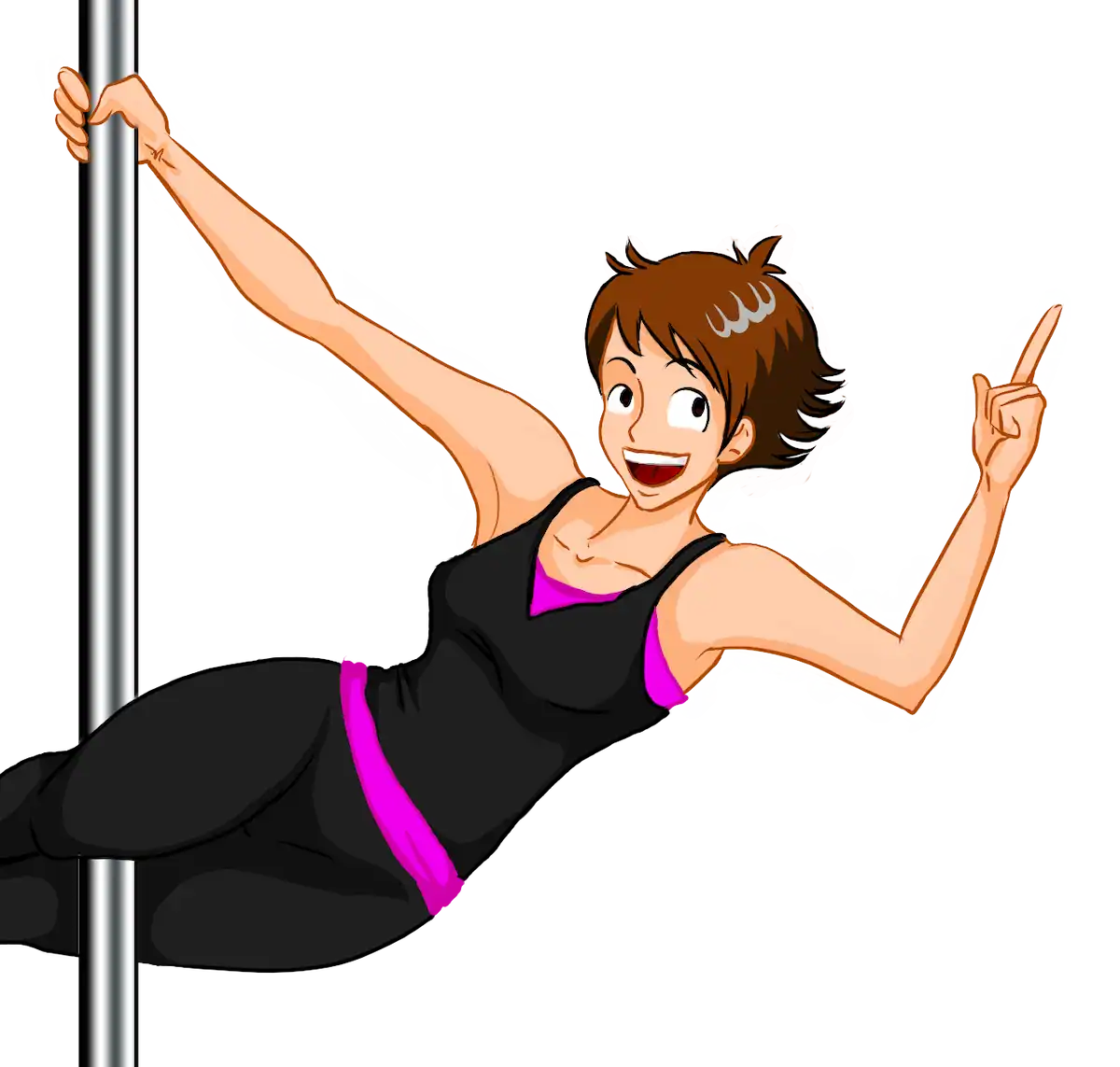
Your Pole Pal says...
👉 Protect your body, train with confidence, and make your pole journey safer by always using a pole dance crash mat.
What's New?
-
Pole Finds: Discounts and Deals on Your Favourite Pole Brands
Feb 19, 26 04:36 PM
Discover pole dancing deals and discounts, plus new product and polewear releases. Curated finds to help you save money on dozens of trusted pole brands. -
Pole Dance Studios in Greece | Pole Directory
Feb 10, 26 09:59 PM
Looking for pole dance in Greece? Discover studios and instructors offering classes in Athens and across the country. -
Pole Fitness Studios in Georgia | Pole Directory
Feb 10, 26 07:30 PM
Discover pole dance studios near you in Atlanta and across the state of Georgia, whether you're looking for pole fitness classes or a fun stagette pole party. -
Florida Pole Fitness Directory | Find Studios in Miami and Beyond
Feb 08, 26 09:58 PM
Searching for pole dance studios in Miami or other parts of Florida? With over 50 Florida pole studios listed in this directory, you're sure to find one near you! -
Pole Dance Studios in Egypt | Pole Directory
Feb 08, 26 08:48 PM
Explore pole dance studios and classes in Cairo and across Egypt. Check out this directory to find studios near you and discover your next fitness adventure.
Your Pole Pal loves to have fun, but she also has to earn a living, right? That's why you'll see ads on this site. She may also earn commissions on some of the products you'll see here, but there's never any cost to you since the advertisers pay for these.
The income generated through these means helps ensure Your Pole Pal can devote the time to providing you with all the free and fabulous information & resources you'll find on this website.
Want to learn more? Your Pole Pal invites to you read her full advertising disclosure. You know...in case you haven't read enough legalese lately.
